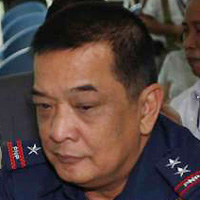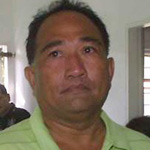The August 23, 2010 hostage tragedy in Manila claimed nine lives and put the then two-month-old Aquino administration in the spotlight of international ridicule. GMA News Online looks back at the personalities held liable for the tragedy. Where are they now? The ground commander: Then-Manila Police District (MPD) head Chief Superintendent Rodolfo Magtibay The Incident Investigation and Review Committee (IIRC), the body that looked into the incident, outlined the eight critical points that affected the outcome of the 11-hour standoff between Mendoza and the government negotiators.
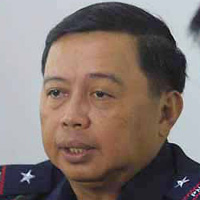
One of the critical points looked at how Magtibay mishandled the situation as overall ground commander. When Mendoza began his shooting rampage, Magtibay was absent from the scene because he and Manila Mayor Alfredo Lim, head of the local crisis committee, were having dinner at a nearby Chinese restaurant. It was also revealed during the IIRC’s hearings that then- National Police chief Dir. Gen. Jesus Verzosa wanted the better-trained, better-equipped Special Action Force (SAF) to step in during the standoff but Magtibay insisted on using the MPD's Special Weapons and Tactics (SWAT) team instead. Adopting the IIRC’s findings, President Benigno Aquino III’s legal team said the National Police Commission (Napolcom) should initiate administrative proceedings against Magtibay for "gross incompetence and serious neglect of duty" and for his failure to take direct and full control of the hostage crisis. The Palace also said Magtibay violated the PNP’s Crisis Management Manual's (CMC) protocol for handling hostage situations. At the height of the IIRC’s investigations, the police leadership sacked Magtibay for the bungled rescue operation.
One year later: Department of Interior and Local Government (DILG) Sec. Jesse Robredo, a member of the IIRC and concurrent head of the Napolcom, told GMA News Online that an administrative case against Magtibay is still pending and is still in the stage of formal offer of evidence.
The superior: Then-NCRPO chief Director Leocadio Santiago Jr. For command responsibility, the Napolcom also filed charges against the former Metro Manila police chief for "less grave neglect of duty" in his capacity as Magtibay's direct superior. The Palace's review said that it appears that Santiago did not closely monitor how Magtibay was handling the situation. On October 15 last year, the police leadership relieved Santiago from the NCRPO. From March 4 to March 14 this year, Santiago also served the 11-day suspension meted out on him.
One year later: Santiago is currently serving as chief of the PNP’s Directorate for Operations, a higher post he assumed two days after his suspension.
The negotiator: Superintendent Orlando Yebra Before nightfall on August 23 last year, Mendoza fired a warning shot at Yebra and his deputy negotiator, Romeo Salvador. The warning shot, as observers said, signaled that negotiations were starting to bog down. What triggered Mendoza’s ire was the Office of the Ombudsman’s letter indicating that his pending case will be reviewed even as it has been sleeping in the office for over nine months. Mendoza was dissatisfied with the Ombudsman's letter, which he said was "garbage." Yebra then said he would talk to his superiors and find another solution to reinstate Mendoza in the service.
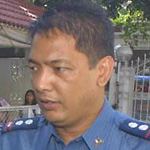
Mendoza’s anger was aggravated when his brother, SPO2 Gregorio Mendoza, said the police negotiators did not return his firearm. Gregorio then suggested that his brother should not accept any agreement until his firearm was returned. This incident is listed among the eight critical points noted by the IIRC. The palace legal team recommended that Yebra be sanctioned for "neglect of duty" for failing to alert his superiors to be ready to take the necessary action when it appeared that Mendoza manifested agitation and violence, as indicated by the warning shot.
One year later: Robredo told GMA News Online that Yebra’s administrative case is still pending before the Napolcom. Yebra is also among the unsuccessful takers of the Bar examinations in September last year. The police superintendent was reviewing for the Bar in between the IIRC marathon hearings that month. When he discovered that he didn’t pass the 2010 Bar exams, Yebra admitted that he was "disturbed" when he took the test.
The SWAT commander: Chief Inspector Santiago Pascual III Touted as Manila’s Finest, the MPD’s SWAT team failed to live up to expectations in the rescue of the hostages and assault against Mendoza. The IIRC described the operation as "inefficient, disorganized, and stalled." The probe body noted that there was no relevant intelligence information about the Hong Thai Travel bus, i.e. the strength of the window panels and the emergency button to open the main door. Pursuant to the Palace legal team’s recommendations, the Napolcom filed administrative charges against MPD-SWAT team head Chief Inspector Santiago Pascual III for "gross incompetence" because of his "failure to formulate an adequate plan to breach the bus." Pascual was also relieved from his post in October last year.
One year later: Robredo said the proceedings against Pascual remain pending and is in the stage of formal offer of evidence.
The crisis committee head: Manila Mayor Alfredo Lim As de facto head of the local crisis management committee (CMC) because of his position as the city's chief executive, Lim's efforts were found inadequate. The IIRC said Lim did not formally activate the local CMC according to the manual in handling hostage crises. Lim did not also activate the sub-groups of the CMC that were supposed to conduct the intelligence-gathering, brief the released hostages, evaluate Mendoza’s behavior, and handle the media covering the incident.
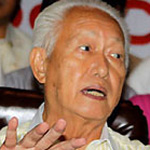
In the final hours of the hostage crisis, Lim, a former police general, adopted a strategy to wear out Mendoza and wait until he gives up. After ordering the MPD to "handcuff" Mendoza’s brother Gregorio, Lim then invited the ground commander, Magtibay, to the nearby Emerald Restaurant because he was "hungry." The IIRC castigated Lim for this decision, saying his absence from the scene "created a vacuum in command or decision-makers" resulting "in the inability of those present to handle crises events as they unfolded." The IIRC also criticized the mayor for focusing on Gregorio Mendoza, whom Lim ordered to be handcuffed. The IIRC said Lim should have trained his attention on the infuriated hostage-taker. "By attending to the peripheral matter, precious time to salvage the negotiations, already critical at this late hour of the crisis situation, was lost. The windows of opportunity were closing," said the IIRC. The brother’s arrest was aired live and was seen by Mendoza on the television set inside the bus, a sight that allegedly drove the hostage-taker into a shooting frenzy that killed eight of his hostages. The IIRC recommended criminal and administrative sanctions against Lim, but the Palace legal team only adopted the latter. The Palace ordered the initiation of administrative proceedings against Lim for misconduct in office and simple neglect (under Sec. 60 of the Local Government Code). His case was referred to the DILG.
One year later: Robredo said the DILG will soon issue a resolution on Lim’s fate. "The hearings on the case of Mayor Lim have already been terminated and he has submitted his memorandum last August 5. So the case is already submitted for resolution," the Interior secretary told GMA News Online.
The hostage-taker's brother: SPO2 Gregorio Mendoza The IIRC did not recommend any sanctions against him, but the Palace legal team’s review included Gregorio among the list of people to be held liable. In fact, the only criminal charges recommended by the legal team were against Gregorio.
In January this year, the DOJ filed charges against Gregorio for being an accomplice to the crime of serious illegal detention, which is punishable under Article 267 of the Revised Penal Code. The DOJ said Gregorio caused the negotiations to collapse by demanding the return of his firearm during a critical point in the hostage crisis, and added that this action "bore a relation to the acts done by Rolando Mendoza." The DOJ also filed a case for illegal possession of firearms against Gregorio. Citing earlier Supreme Court rulings, the DOJ said that even policemen like Mendoza do not have the absolute right to own and transport weapons.
One year later: The two separate cases against Gregorio are pending before the Manila Regional Trial Court. Gregorio has decried the government’s decision to slap criminal suits against him and said that Mayor Lim should be the one facing criminal charges.
The alleged extortionist: Then-Deputy Ombudsman Emilio Gonzalez III Two years before the hostage tragedy, the PNP junked an administrative case against Mendoza. However, the case was picked up by Gonzalez, who was then deputy Ombudsman for police and military affairs. In its report, the IIRC noted Gonzalez’s "special interest" in probing the case even after the PNP had junked it.
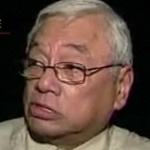
In May 2009, the Office of the Ombudsman ordered Mendoza’s dismissal, on the recommendation of Gonzalez. Mendoza filed a motion for reconsideration, but this was not acted upon. It was the Ombudsman's supposed slow action on Mendoza's motion that led the dismissed police officer to hijack the tourist bus and use its passengers as leverage in pushing for his demands. One of the negotiators, Chief Inspector Romeo Salvador, had told IIRC probers he heard Mendoza cursing at Gonzalez for allegedly demanding a P150,000 bribe from the hostage-taker for immediate action on his case. Gonzalez has repeatedly denied the accusations. Adopting the IIRC’s findings, the Palace legal team said the Office of the President will initiate administrative proceedings and an investigation against Gonzalez' "neglect of duty and/or inefficiency in the performance of official duty."
One year later: Last March, Malacañang wrapped up its investigation and found an inordinate and unjustified delay in the resolution of Mendoza’s appeal on his dismissal from police service. It said the delay constituted “a flagrant disregard" of the Office of the Ombudsman’s Rules and Procedure, which provide that a motion for reconsideration must be acted upon within five days from the submission of the documents. Malacañang also stated that there was substantial evidence to prove that Gonzalez committed gross misconduct for showing undue interest in taking over the administrative case filed against Mendoza. Malacañang then ordered Gonzalez' dismissal from service — making him the first public official sacked for the August 23 hostage tragedy. In May this year, acting Ombudsman Orlando Casimiro implemented the Palace’s order to remove Gonzalez from office. To date, the former deputy Ombudsman is contesting his dismissal before the Supreme Court.
The favored ones? The Palace legal team may have opted to adopt the IIRC’s findings against policemen and other government officials, but it chose not to follow the recommendation to sanction DILG Undersecretary Rico Puno, then PNP chief Director General Jesus Verzosa, and Manila City Vice-Mayor Francisco Domagoso a.k.a. Isko Moreno. 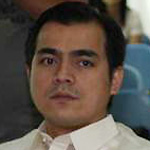
Manila City Vice-Mayor Isko Moreno
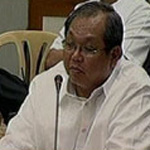
DILG Undersecretary Rico Puno

